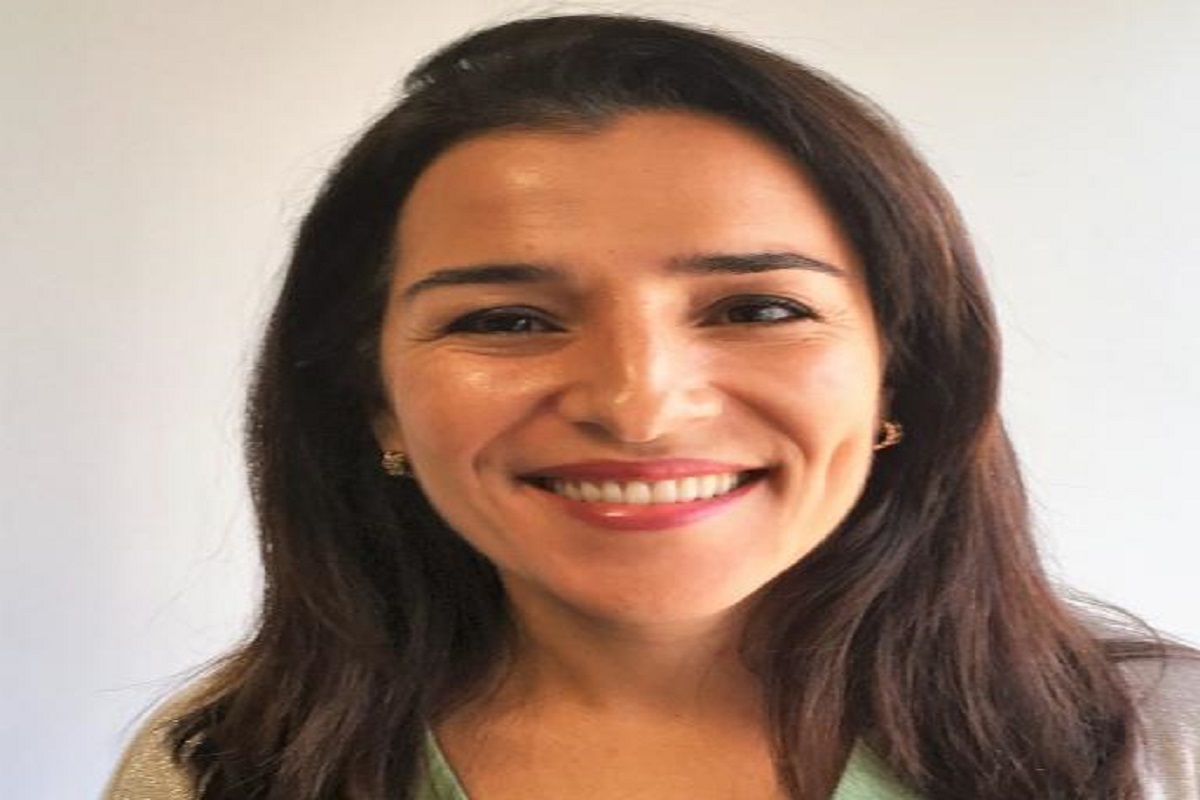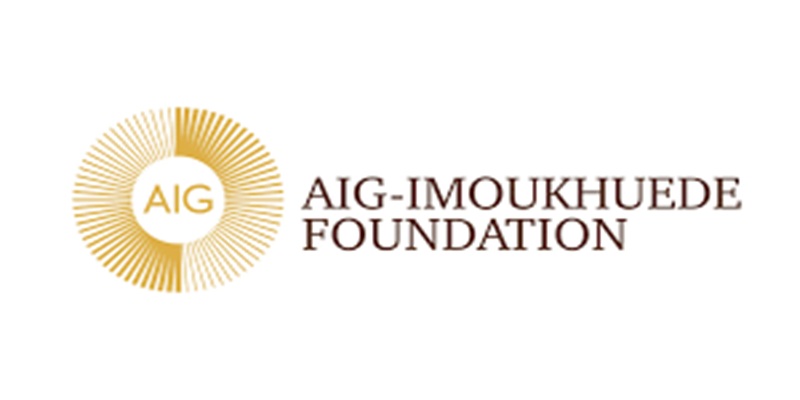Broadcasting
5G Connectivity Holds Enormous Potential to Advance Innovation and Economic Development in Nigeria – Carvalho

Julia Carvalho is the General Manager for IBM Growth Markets in Africa. Julia is responsible for IBM’s business operations, growing the partner ecosystem and driving client satisfaction across multiple regions. She has an extensive experience in the IT and energy industry.

Julia Carvalho, General Manager for IBM Growth Markets in Africa
Prior to her appointment as General Manager, IBM Growth Markets, Africa Ms. Carvalho held the position of General Manager for Angola, Mozambique, Cape Verde and Sao Tome. She helped expand IBM’s footprint and led the digital transformation journeys of clients around our key strategic imperatives of Hybrid Cloud and AI.
Before joining IBM, Ms. Carvalho held led sales at Halliburton – Landmark Software and Services and previously served as a Professor and Researcher at the University of Lisbon. In prior roles, Ms. Carvalho was a consultant with Sonangol P&P and Sonagas and led the Natural Resources business unit at Sinfic in Angola.
In this interview with Nigeria Nigeria CommunicationsWeek reporter, Carvalho spoke on growth of 5G in Sub- Saharan Africa, and the role of Edge computing in digital transformation in Nigeria . Excerpts.
Could you share with us the role of IBM Edge Computing in digital transformation in Nigeria?
5G growth in the region is expected to develop rapidly in the second half of the decade and continue into the 2030s. This will have economic impact on Nigeria’s GDP and contribute to overall growth in Sub-Saharan Africa.
The greatest benefit will be the contribution to innovation and economic development and IBM believes 5G connectivity has enormous potential to advance industries ranging from streaming and communications to advanced robotics and manufacturing. The complexity of telco networks today and the speed of change has made management and control of infrastructure extremely painful. It is clear the tools, systems and methods of managing networks today are simply not fit for purpose for the network of tomorrow.
To advance the rollout of 5G connectivity worldwide, communications services providers (CSPs) are turning to AI-powered automation and network orchestration to improve the control and management of networking to deliver faster customer experiences. Innovations like network slicing allow organizations to set service levels for each device appropriate to their use of the network. For example, an autonomous vehicle can be supported by very low latency while an HD video camera can be allocated high bandwidth. AI has the potential to quickly enable changes in the network that optimize network performance and reliability by applying machine learning, helping CSPs deliver on the promise of 5G.
Edge computing will offer Nigeria’s companies a more efficient alternative by processing and analysing data closer to the point where it’s created. Because data does not traverse over a network to a cloud or data center to be processed, latency is significantly reduced. Edge computing — and mobile edge computing on 5G networks — enables faster and more comprehensive data analysis, creating the opportunity for deeper insights, faster response times and improved performance and data security, and enhance customer experiences in the region.
Nigeria has licensed 5G operators who are yet to roll out services, how ready is the market for 5G services in terms of device availability?
Nigeria is progressing well in the rollout of 5G with the completion of the spectrum allocation. The next step will be to put the right infrastructure in place for networks to handle the immense numbers of connected devices. As the Executive Vice-Chairman and Chief Executive Officer (EVC/CEO) of the Nigerian Communications Commission (NCC), Professor Umar Garba Danbatta, has said, a collective effort is required toward Nigeria realizing the full benefits of the 5G rollout.
This is why we are more than happy to partner with the Nigerian government and the respective telcos to help with the successful rollout of 5G in the country. Beyond providing pipelines and bandwidth, we’re making edge services and 5G happen by delivering the capabilities, expertise and outcomes that our customers demand at scale, more securely and efficiently with our hybrid cloud architecture – IBM Cloud for Telecommunications. We are able to help telecoms deploy and modernize their core networks while giving telcos access to our rich ecosystem of partners for add-on solutions and use cases that fit the specific needs of the individual telco.
We also have a long history of working with the world’s largest telcos to help drive their digital transformation as they modernize workloads. In fact, 83% of the world’s telcos are IBM clients.
5G adoption brings about increased data generation and need for storage. How can these data be managed effectively?
It is true that 5G adoption will increase data generation. Be it audio, video, sensory or telemetry, every device produces data every second, and it is estimated that 2.5 exabytes of data are produced each day. Those bytes need to be stored somewhere, otherwise, they get discarded since many devices can store little or no data. So, what do we do with all that data and where do you store it?
In one of our recent studies, 74% of CEOs believe cloud computing will be the most helpful technology for their organization to deliver results over the next 2-3 years. As a result, we are laser-focused on the $1 trillion hybrid-cloud opportunities and we are investing in open innovation and security. Already, less than 25% of workloads have moved to the cloud, which leaves a majority still to migrate to the cloud.
IBM is the leader in the new era of hybrid cloud with full-stack capabilities including an AI-enabled software portfolio that has been retooled with open technologies. Our approach to cloud storage is to give clients the freedom of working on multiple clouds allowing them to “build once, deploy anywhere” – on-premise, at the edge, on any cloud, from any vendor. As our clients are not only looking to store their data but gain insights from it, our software is infused with enterprise-grade AI from Watson, which can be applied to their data, no matter where it lives.
We see this as unique from all other cloud providers – who claim to have “hybrid cloud offerings” – but require clients to move their data to their public cloud to take advantage of data management. At the same time, we see other providers and hyperscalers as our partners because, in order to leverage innovation happening with cloud and AI, clients need a platform that can run across every major cloud provider. This is what IBM’s hybrid cloud platform delivers.
What are you doing differently from what data centres offer organisations?
As I mentioned previously, we don’t just offer hybrid-cloud solutions to our partners, we offer an ecosystem of products and solutions that allows our partners to bring value and to their clients.
Our partners often operate in complex, multi-national and highly regulated industries, and we understand the importance of embedding security and compliance across all platforms – including public clouds and on-premises – to harness the power of cloud.
For example, some of Africa’s major banks, including Nigeria’s United Bank of Africa, have turned to us for our hybrid cloud and AI capabilities to unlock digital innovation and continue their work to develop digital-first solutions, ultimately aiming to broaden access to financial services. Banks face unique challenges when it comes to balancing innovation and regulatory compliance. We have utilised IBM’s extensive experience and leadership in security and data privacy in the financial services industry to fuel transformation by helping banks modernize, transform their operations, and offer innovation to their customers. We are able to achieve this through intelligent, cloud-based, digital-first innovation built on our hybrid cloud and AI capabilities
What have you put in-place to ensure that sensitive data stored with you are well protected?
Security is at the heart of our enterprise cloud adoption solutions. IBM has earned the trust of our clients by responsibly managing their most valuable data for more than a century.
And as the battle for consumer trust takes place on multiple fronts, from the ability to make decisions understandable and explainable to providing consumers with confidence that their personal data is being protected against cyberattacks – telcos will continue to invest in cybersecurity and AI will play an even more crucial role in helping identify and respond to threats more efficiently, as they move towards a “zero trust” approach to further reduce risks.
We’re already witnessing this shift as telcos recognize the importance of security as a fundamental element to their transformation – 87 percent of CEO’s in Nigeria said data security being embedded throughout the cloud architecture is important or extremely important, in most cases, to successful digital initiatives.
A hybrid cloud model keeps telcos in control of their data by infusing enterprise level security in all aspects of the workflows they manage, as well as for those of customers and partners. With an open hybrid cloud approach, telcos can safely monetize their data because they can continue to own the keys to it, maintain control over privacy settings and integrate security and compliance across the breadth of their IT workloads.
Broadcasting
US invests $115m in counter-drone tech for World Cup security


Drone
The US Department of Homeland Security (DHS) will invest $115 million in counter-drone technology to safeguard the 2026 FIFA World Cup and events marking America’s 250th independence anniversary, creating a dedicated office for rapid drone system deployment.
Homeland Security Secretary Kristi Noem described drones as “the new frontier of American air superiority,” stressing the need to counter threats from drug cartels using unmanned aircraft for smuggling and surveillance, alongside incidents like a 2025 NFL stadium drone flight and 2024 New Jersey sightings.
The funding supports 11 World Cup host cities expecting over one million visitors, building on FEMA’s $250 million grants to those states and addressing risks heightened by cartels’ advancing tech, including a reported FBI tracking plot in Mexico.
DHS has conducted over 1,500 counter-drone missions since 2018, with the new Program Executive Office accelerating acquisitions amid President Trump’s border security push.
Broadcasting
Youth Talent Takes Center Stage as T2 Ignites High-Octane Rap Battles @ Carnival Calabar

The energy at the Carnival Calabar Music Concert reached a new high as T2 introduced a first-ever rap battle platform, giving young Nigerians an electrifying stage to showcase their talent, creativity, and self-expression while competing for exciting prizes.

Held at the U.J. Esuene Stadium, the activation blended pulsating music, vibrant culture, and youthful energy into a dynamic celebration that kept thousands of carnival-goers fully engaged from start to finish.
Eight fearless contestants stepped into the spotlight, going bar for bar in an intense lyrical showdown. Rappers fused local languages, pidgin, and sharp punchlines, creatively weaving the T2 brand into their verses.
Anchored by the energetic hosting duo MC Double I and MC Princess, the rap battles thrilled over 16,000 attendees, including the Governor of Cross River State, Senator Bassey Otu, delivering an unforgettable showcase of youth talent and cultural expression.
With prizes including fridges, gas cookers, sound systems, and airtime top-ups, the competition remained fierce throughout the night. After two high-energy rounds narrowed the field to a five-man final duel, Emmanuel Eye emerged as the overall winner, taking home the grand prize — a fridge.
“I never expected this at all,” Emmanuel said. “I came to the concert like anyone else, and hearing about the T2 rap battle was a surprise. When I got the chance to perform, I just went for it. Being named the overall winner is amazing, and I’m grateful to T2 for creating this platform to showcase our talent.”
Beyond the stage performances, T2’s presence added a digital layer to the carnival experience. As part of its role as Digital Technology Partner of Carnival Calabar, the brand introduced the MyT2 App as a lifestyle companion, while also enabling line reactivations, airtime top-ups, and instant rewards for hundreds of attendees, blending technology seamlessly into the live celebration.
Commenting on the activation, Chinelo Manefo, Specialist, Events and Sponsorship at T2, said:
“The energy from both the rappers and the crowd was incredible. This platform reflects exactly what T2 aims to create — a celebration of youth, creativity, and culture, enhanced by technology that connects people and experiences. Seeing the audience so immersed shows how music and performance can empower the next generation.”
The Carnival Calabar Music Concert, headlined by Tiwa Savage, Timaya, and top local performers, was further energized by T2’s interactive rap battle platform. By blending music, culture, youth expression, and digital innovation, T2 reinforced its commitment to championing Nigeria’s next generation, giving young creatives a stage to shine while enriching how they experience the festival.
Broadcasting
Aig-Imoukhuede Foundation Wrapped Up 2025 with Real Change in Governance, Health, Media Across Africa

Aig-Imoukhuede Foundation has announced its 2025 achievements, marking a year of accelerated impact, systemic reforms and innovation in public leadership and service delivery across Africa.

Aig-Imoukhuede Foundation
A statement issued on Wednesday in Lagos said the foundation strengthened governance, improved primary healthcare, drove digital transformation and elevated media’s role in promoting public sector accountability.
It said the AIG Public Leaders Programme (PLP) trained 72 public sector leaders from Nigeria, Egypt, Tanzania, Cameroon, Zambia, Malawi and Kenya—its fastest growth to date—bringing the alumni network to 309.
These alumni are driving 237 reform projects to enhance public institutions, from faster decision-making to greater transparency, with nine promoted to higher roles for their contributions.
On civil service modernisation, the foundation accelerated digitalisation at the Office of the Head of the Civil Service of the Federation (OHCSF), streamlining 19 processes and achieving a 75 per cent increase in work speed through automated workflows.
It also trained over 400 officials from the Federal Ministry of Justice, Federal Civil Service Commission and Federal Ministry of Innovation, Trade and Investment in digital skills to support the FCCSIP 25 initiative and ongoing digital rollouts.
In healthcare, the Adopt-A-Healthcare-Facility Programme renovated four primary healthcare centres in Edo State, boosting antenatal visits by 73 per cent, immunisation coverage over 100-fold and fully vaccinating 554 children, while supporting 6,788 patients.
The foundation recognised 18 outstanding public servants with ₦500,000 each via the Emily Aig-Imoukhuede Endowment Awards and received a partnership award from the OHCSF for civil service reform efforts.
To empower media, it trained 50 journalists from top Nigerian media houses in impact storytelling, data analysis, visual and ethical reporting to better inform citizens on public sector changes.
Over five years (2021–2025), the foundation invested £2.6 million in PLP, saved ₦2.38 billion for the public sector through capacity building, trained 1,500+ civil servants, upskilled 660 digitally, trained 40 permanent secretaries and awarded 33 scholarships driving seven policy changes.
Other milestones include digitising 5,000 files, automating 333 processes, a 61 per cent efficiency gain, 60 per cent digital file creation at OHCSF, 128 excellence awards, 116 process reforms, 23 advocacy projects, 25 capacity initiatives, 18 podcasts, four healthcare articles, three policy papers, 23 adopted PHCs (four renovated) and 878+ fully immunised children aged 0–9 months.
Executive Vice Chair, Mr Aigboje Aig-Imoukhuede, said: “2025 was a year of real, measurable impact. From training hundreds of public servants to improving healthcare, helping ministries go digital, and equipping journalists to tell stories that matter, our work is making governments work better for citizens and communities across Africa.”

 E-Financial2 days ago
E-Financial2 days agoSEC Hikes Minimum Capital Requirements for Market Operators After a Decade

 Telecom2 days ago
Telecom2 days agoStudy Shows Blocks in Telegram are Pushing the Underground Out

 News2 days ago
News2 days agoNigeria Off EU High-Risk Money Laundering List in Major Financial Win

 News2 days ago
News2 days agoNGX Unveils Net-Zero Plan for Greener Capital Market

 Telecom2 days ago
Telecom2 days agoVodacom Crowned Africa’s Top Employer 3rd Year Running on Innovation, Ethical AI

 Telecom2 days ago
Telecom2 days agoGalaxy Backbone Marks Two Decades of Powering Nigeria’s Digital Evolution

 Telecom2 days ago
Telecom2 days agoGalaxy Backbone Marks 20 Years, Tops FG Website Scorecard

 News6 hours ago
News6 hours agoICPC Charges Ozekhome with Forgery, Corruption Over London Property

























